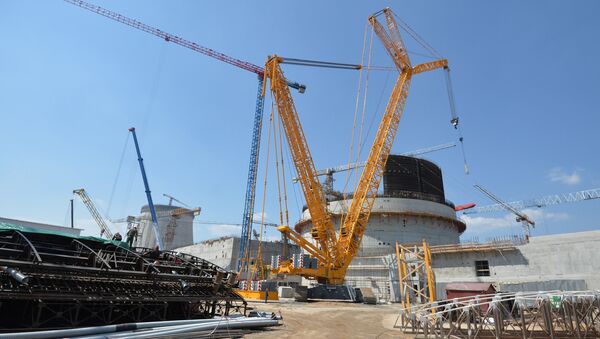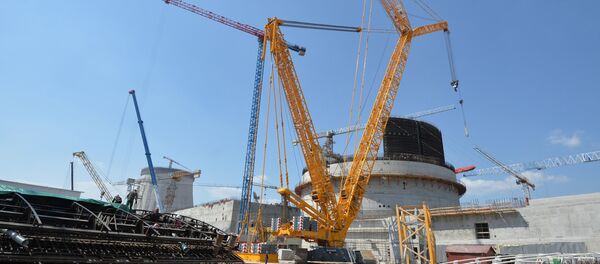"The commissioning period for the second unit will not change, and its launch will take place in accordance with the schedule. The project's cost should not change as well," Petrishenko said.
The plant will be an exemplar in nuclear energy safety, Petrishenko added.
Vilnius and Minsk face a continued rift as Belarus, assisted by Russia, is constructing a nuclear power plant (NPP) approximately 31 miles away from Vilnius. Lithuania has been objecting the construction, claiming the NPP was not safe enough, whereas Belarus insists that the NPP will comply with the highest safety standards.
The ambassador recalled that the IAEA mission in January confirmed that the chosen site and design solutions provide a response to all external threats.
"And more recently, at the beginning of June, experts from the World Association of Nuclear Operators visited the construction site of the Belarusian NPP, their conclusions are similar," Petrishenko concluded.
The first Belarusian NPP is being built near the town of Astravyets, 30 miles from the Lithuanian border with participation of Russian specialists. The NPP will comprise two power units with a total capacity of up to 2,400 MW with the first unit expected to be put into operation in 2019 and the second in 2020.
The station's first unit is due to start operating in late 2019. The NPP will be comprised of two power units, which will have a total energy capacity of up to 2,400 MW.




